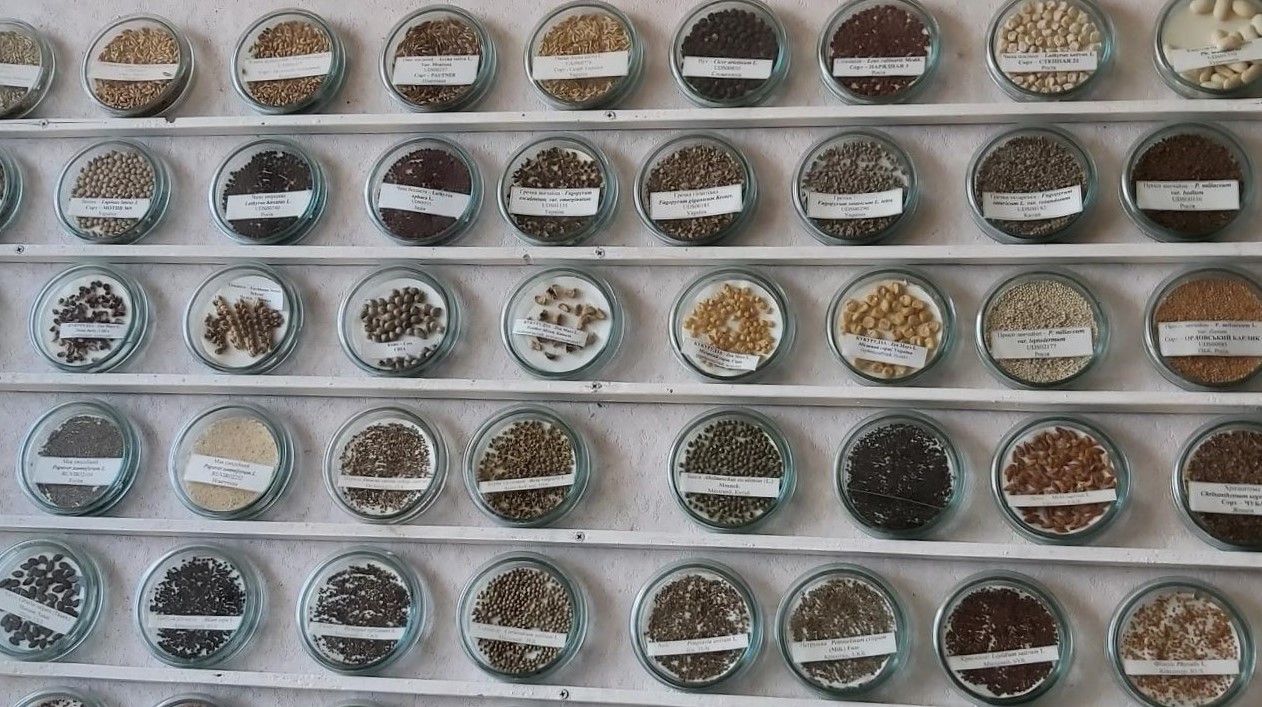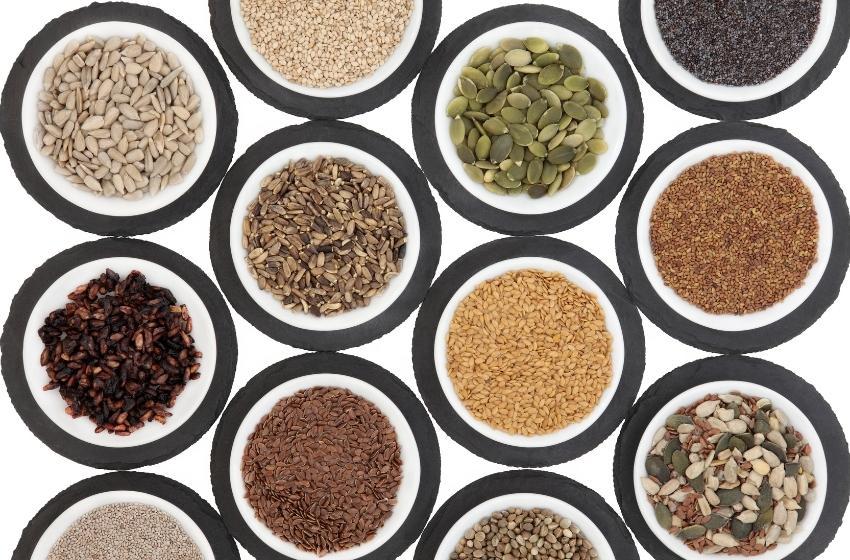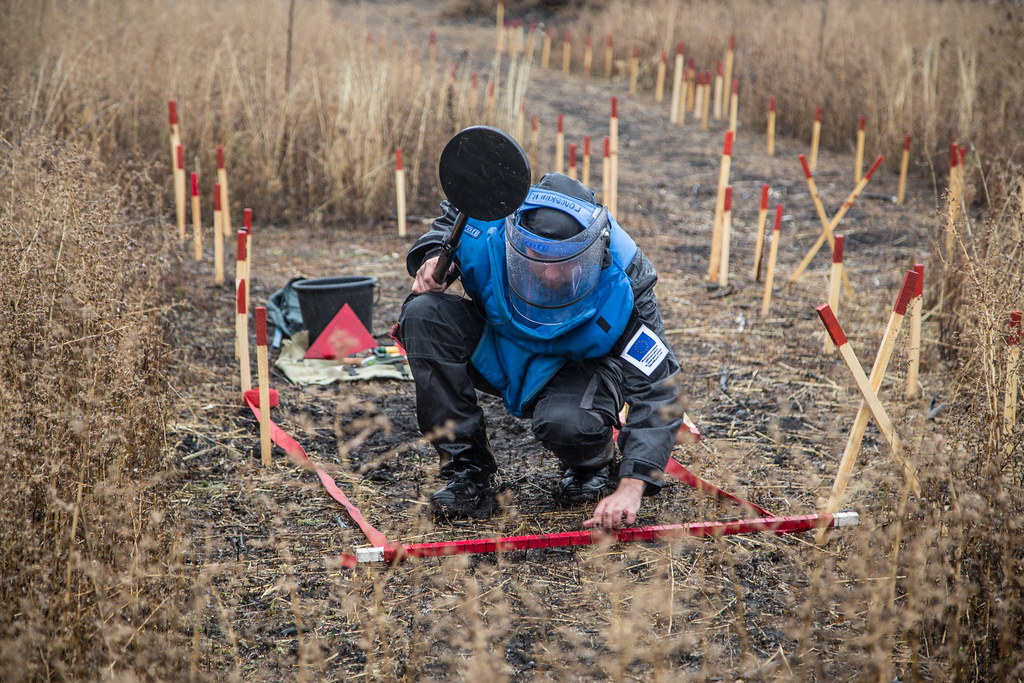Ukraine is a leader in the production and export of agricultural products and a treasure trove of diverse plant genetic resources. Since Russia's full-scale invasion in February 2022, Ukraine's national Gene Banks, which contain thousands of unique plant varieties, have suffered significant losses. To restore and further develop the system, scientists from the National Academy of Agrarian Sciences, in collaboration with international organizations, have developed the 2024-2028 Plant Genetic Resources Strategy for Ukraine, which has garnered international support.
The Strategy’s key areas include the preservation of plant gene pool samples, the establishment and management of sample databases, sample regeneration, collection expansion, the involvement of valuable genetic diversity samples, the study and exploration of valuable traits, and the exchange of information and samples.
A primary goal is ensuring the security of sample collection, which is particularly challenging in the current circumstances. The Strategy outlines plans to modernize existing equipment, update seed laboratories and storage facilities, and introduce a new data management system.
"The Gene Bank of Ukraine is among the world’s top ten in terms of the volume and diversity of seed samples it preserves. Collections of wheat, barley, peas, chickpeas, sunflower, and forage crops have global significance. These measures will help secure our collections for future generations," says Viktor Ryabchun, head of the Ukrainian Plant Genetic Resources Center.
The Strategy also envisions participation in international cooperation programs related to plant genetic resources. The system relies heavily on external support, especially due to the reduced budget caused by the ongoing war. The FAO, ITPGRFA, Crop Trust, and NordGen have supported Ukraine since the Russian invasion began in 2022.
In 2023, with FAO's support, some seed samples were duplicated and moved to a safer location. FAO is also ready to contribute to the long-term protection of these critical genetic resources, which are vital for global food security.
"This is crucial for Ukraine, as the Strategy aims to expand and deepen international cooperation through ratifying the International Treaty on Plant Genetic Resources for Food and Agriculture (ITPGRFA), as well as membership in the ECPGR and the FAO Commission on Genetic Resources for Food and Agriculture," states Yaroslav Hudzalo, President of the National Academy of Agrarian Sciences of Ukraine.
"The fact that the strategy has been finalized and is now being implemented is a major achievement. We are confident that its execution will lead to expanded international cooperation and stronger ties with the global plant genetic resources community, as well as improved security for Ukraine’s plant genetic resources. We also see this strategy as an important step toward Ukraine’s EU membership," adds Mykola Royik, Vice President of the National Academy of Agrarian Sciences of Ukraine.
"Our mission is to support the collections of unique and valuable plant genetic resources for food and agriculture stored in Gene Banks worldwide. Ukraine’s Gene Bank collection is truly unique and valuable, and it is a great honor to assist Ukraine in developing this Strategy. We look forward to its execution and will provide all the support we can," emphasizes Stefan Schmitz, Executive Director of Crop Trust.

NordGen and the Novo Nordisk NordGen Fund have provided financial support, addressing some salary issues, staff training, and the acquisition of necessary equipment.
"Preserving genetic resources is not Ukraine’s solo effort—international cooperation is crucial. Helping our Ukrainian colleagues restore and develop their gene bank is also helping ourselves. The unique crops stored in Ukraine are a vital part of agricultural biodiversity that everyone who consumes food depends on," stresses Lise Lykke Steffensen, Executive Director of NordGen.
The system of plant genetic resources in Ukraine (PGRSU) is part of the National Academy of Agrarian Sciences of Ukraine, an autonomous state scientific organization responsible for the scientific support of the development of Ukraine's agricultural sector.
The PGRSU consists of 34 institutes, including the National Center for Plant Genetic Resources of Ukraine (NCPGRU) and other research stations, each responsible for different plant species. Due to Russia's occupation in 2014, the system lost four research institutions, and two more were occupied in 2022. Since then, the system has been reduced to 28 institutions. These institutions are geographically distributed across almost the entire territory of Ukraine, with some being more vulnerable to war than others. The main seed collection is located in Kharkiv, but a duplicate storage facility was established in another part of Ukraine in 2023.
The plant genetic resources system in Ukraine contains over 154,000 seed samples from 2,002 species: 16% are local forms, 5.9% are wild relatives of agricultural crops, and the rest are modern varieties and breeding-genetic lines. Currently, only 2,780 seed samples have been duplicated in the Svalbard Global Seed Vault, with preparations underway for further transfers.





















